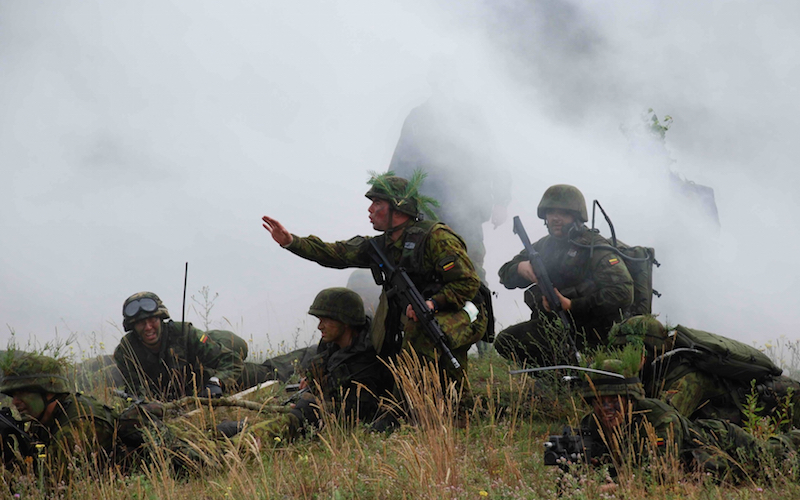
Emergence of a Paramilitary Organization in Lithuania
One of the consequences of the geopolitical changes that has come to characterize modern civil society has been the surge in popularity of paramilitary units across Europe. This phenomenon is particularly noticeable in the Baltic States where there is concern over the rise of Russia’s military activity.
The Lithuanian Riflemen’s Union is a telling example. Established in 1919, the Union has become very popular in the past few years with its membership growing significantly. It now has around 8,000 members up from 6,000 two years ago.
Trained by military personnel and falling under the responsibility of the defense ministry, the Union serves the purpose of supporting the regular army’s capabilities and acts as an additional deterrent against external aggression.
As a result of the volatile security environment, the enthusiasm for this voluntary defense organization has been welcomed by the government as a “valuable contribution” to national defense.
In December, 2015 the Union was authorized to have automatic weapons in an agreement with the Lithuanian Ministry of National Defense. Earlier, the Lithuanian Weaponry Fund on March 23, 2015 handed over weapons and bulletproof vests to the Lithuanian Riflemen’s Union as well.
As we know, the road to hell is paved with good intentions. There is a real threat facing the emergence of a new aggressive power inside the country. Though the Lithuanian Riflemen’s Union has nothing in common with the Ukrainian Right Sector, it could become a similar structure and under certain conditions could even oppose government authorities.
On the one hand this paramilitary unit of 8,000 members could be of help to the national armed forces in case of war. However, the members of this non-partisan structure are not obliged to follow Defense Ministry orders. They may have a completely different point of view. Its members are not attracted by job agreements or salary and they do not take an oath of support for the government. Some of them are real patriots, but some of them are motivated by hatred, personal interests and ambitions. All of them have military skills! As a result, the Lithuanian Riflemen’s Union could become a real military power when armed and equipped. Taking into account the size of the Union (almost half the size of the national armed forces), it should be controlled by the official structures.
One of the largest Lithuanian media outlets published instructions on “neutralizing collaborationists” in the country. Members of the Lithuanian Riflemen’s Union proposed their method to suppress the collaborationists should military action begin. Activists of the Union openly propose methods of fighting “internal enemies” using psychological pressure and harassment. They behave as if the Lithuanian government has delegated the Union such power. Lithuania is a democratic republic under the rule of law.
As in Ukraine armed citizens who once helped the government could change their views and openly oppose official policy. What will happen then? Look at Ukraine.
In a democratic state only governmental structures should have access to weapons and military equipment. It is doubtful that the Lithuanian government fully understands the potential threat. Do we trust paramilitary groups? Are they loyal to the authorities? A lot of questions without answers.

